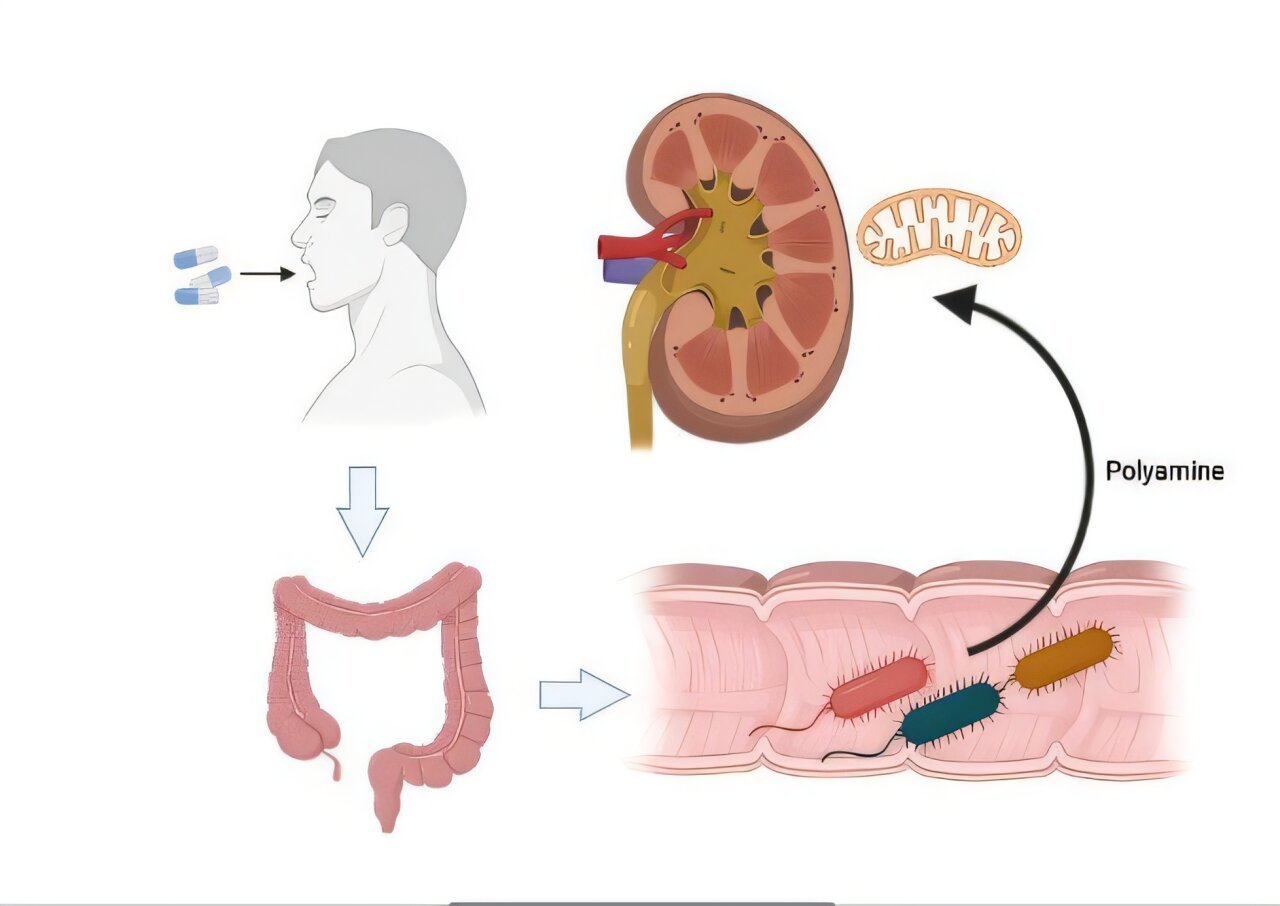Chronic Kidney Disease (CKD) is a health crisis that affects millions of people globally. It’s a silent and often devastating condition, with many patients eventually needing life-saving dialysis to keep their kidneys functioning. Despite its widespread impact, the medical world has struggled to find effective drugs that can improve kidney function in CKD patients. But recent research from Tohoku University in Japan has opened up an unexpected possibility: a drug commonly used for constipation might be the key to slowing kidney failure in these patients.
The Urgent Need for New CKD Treatments
Kidney disease is insidious, often progressing silently until it becomes too late for easy intervention. As the kidneys lose their ability to filter waste and regulate fluid levels, patients face a range of debilitating symptoms that affect nearly every aspect of their lives. By the time dialysis becomes necessary, it’s a life-altering experience that involves regular visits to medical centers for blood filtering. However, current treatments mainly focus on slowing the progression of the disease rather than reversing or improving kidney function. There is a pressing need for more effective therapies—ones that go beyond managing symptoms to addressing the root causes of CKD.
A Curious Link Between Constipation and Kidney Health
In a groundbreaking study published in Science Advances, a research group led by Professor Takaaki Abe of Tohoku University’s Graduate School of Medicine has discovered an unexpected solution to this urgent problem. Their research centers around lubiprostone, a drug typically prescribed to treat constipation. What’s extraordinary about this discovery is that lubiprostone, a laxative, has now been shown to prevent the decline of kidney function in CKD patients—a medical breakthrough that could change the way CKD is treated.
This discovery began with a simple observation: constipation is a common symptom among CKD patients. It’s often dismissed as just another uncomfortable side effect of the disease, but Professor Abe and his team were curious about a deeper connection. They wondered: could treating constipation actually have a positive effect on kidney function?
“Our hypothesis was based on the idea that constipation disrupts the gut’s microbiota, which in turn worsens kidney function,” says Professor Abe. The gut and the kidneys, it turns out, are more connected than we might think. Disruptions in the microbiota, the community of bacteria and microbes in the intestines, can have a profound impact on various organs, including the kidneys. By improving the gut microbiota, it’s possible to potentially reverse some of the damage done to the kidneys.
The Trial That Changed Everything
To test this theory, the team conducted a multicenter Phase II clinical trial, known as the LUBI-CKD Trial, across nine medical institutions in Japan. They enrolled 150 patients with moderate CKD to evaluate how lubiprostone affected their kidney function. The trial was designed to compare the effects of the drug against a placebo, with patients receiving either a low (8 µg) or high (16 µg) dose of lubiprostone.
The results were nothing short of revolutionary. Compared to the placebo group, patients treated with lubiprostone showed a marked reduction in the decline of kidney function. The most significant improvement was seen in the group receiving the higher dose (16 µg), where kidney function—measured by the estimated glomerular filtration rate (eGFR)—was preserved much better than in those who did not receive the drug.
This was the first time that a drug typically used for constipation was shown to slow the progression of kidney disease, marking a pivotal moment in the field of nephrology. “The decline in kidney function was suppressed in a dose-dependent manner,” the researchers explained, which suggests that higher doses of lubiprostone may offer even more protection for CKD patients in the future.
The Science Behind the Discovery
So, how does lubiprostone work to protect the kidneys? The researchers dug deeper into the biological mechanisms at play and uncovered something fascinating. It turns out that lubiprostone promotes the production of spermidine, a naturally occurring compound that plays a crucial role in mitochondrial function. Mitochondria are the powerhouses of our cells, responsible for producing the energy needed for cellular activities.
By promoting the growth of beneficial bacteria in the gut, lubiprostone helps boost spermidine production, which in turn supports mitochondrial health. This effect has a powerful impact on kidney cells, where improved mitochondrial function helps protect against further kidney damage. Essentially, by addressing an imbalance in the gut microbiota, lubiprostone appears to promote healthier kidney function, acting as a “renoprotective” agent that shields the kidneys from ongoing harm.
The Road Ahead: What’s Next for CKD Treatment?
The implications of this discovery are enormous. If further trials confirm the results of the Phase II study, lubiprostone could become an essential part of the treatment regimen for CKD, offering a non-invasive, easy-to-administer solution to slow the progression of kidney failure. But the researchers aren’t stopping there. Professor Abe and his team are already planning a Phase III clinical trial, which will include a larger population of CKD patients to validate the findings and assess the drug’s effectiveness in diverse patient groups.
In addition to expanding the clinical trials, the researchers are also exploring potential biomarkers that could predict how well patients will respond to lubiprostone. This could allow doctors to tailor treatments more precisely to the needs of each individual patient, ensuring that the most effective therapy is used for every case of CKD.
“The goal is to provide each patient with CKD the optimal treatment plan,” explains Abe. This personalized approach, in combination with new drugs like lubiprostone, has the potential to transform the way CKD is managed, offering hope for millions of patients who currently have no cure.
Changing the Narrative on CKD Treatment
For decades, the treatment of CKD has focused primarily on managing symptoms and slowing the build-up of toxic substances in the blood (uremic toxins). But this new research challenges that paradigm, suggesting that therapies aimed at improving kidney function—not just preserving it—could be within reach. The idea that a simple drug for constipation could help save kidneys from further damage is a game-changer in the field of nephrology.
As we look to the future, this study opens up new possibilities not only for CKD but for a range of diseases tied to mitochondrial dysfunction and gut health. The fact that a drug initially intended for one purpose can have such profound effects on an entirely different organ system speaks to the interconnectedness of our bodies, and to the power of creative, outside-the-box thinking in medical research.
A New Era for CKD Patients
For those living with CKD, this discovery offers a glimmer of hope where there was once little. While there’s still much work to be done before lubiprostone becomes a widely prescribed treatment, the results thus far are incredibly promising. CKD patients who once faced a lifetime of dialysis or kidney transplants may soon have an alternative—one that offers not just symptom management, but real, tangible improvement in their kidney function.
In the end, this discovery is a testament to the power of science to think creatively, challenge assumptions, and make a meaningful difference in the lives of patients. It reminds us that in the world of medicine, solutions often come from the most unexpected places—and that with each breakthrough, we take one step closer to better health for everyone.
More information: Shun Watanabe et al, Lubiprostone in Chronic Kidney Disease: Insights into Mitochondrial Function and Polyamines from a Randomized Phase 2 Clinical Trial, Science Advances (2025). DOI: 10.1126/sciadv.adw3934. www.science.org/doi/10.1126/sciadv.adw3934






